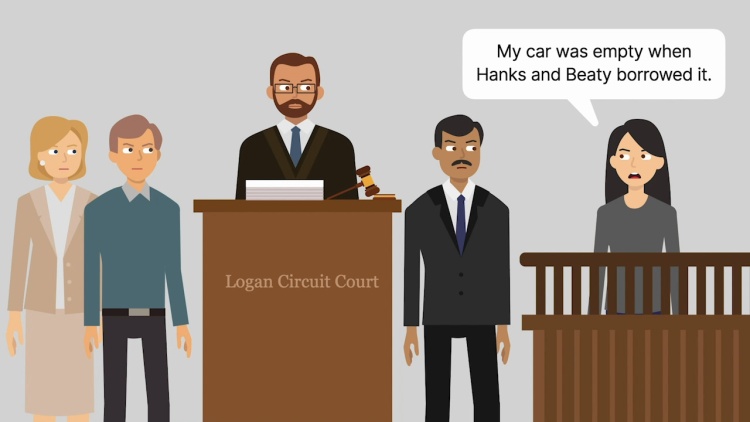Beaty v. Commonweath
Kentucky Supreme Court
125 S.W.3d 196 (2003)
- Written by Craig Conway, LLM
Facts
A police officer pulled over a vehicle driven by Roger Beaty (defendant). Beaty’s girlfriend, Marion Ann Hanks, was in the front passenger seat. Beaty failed a field sobriety test and was charged with driving under the influence of a substance other than alcohol. A search of Beaty’s person revealed bags of marijuana, cocaine, and drug paraphernalia. Inside the car, police officers found marijuana and alcohol in the front seat and glove compartment, and various items used to manufacture methamphetamine in the back seat and trunk. The Commonwealth of Kentucky (plaintiff) charged Beaty with nine counts, including manufacturing methamphetamine, possession of a controlled substance, and possession of a substance with the intent to manufacture methamphetamine. Hanks testified that she and Beaty had borrowed the car from its owner, Pamela Kuhl, and that neither Hanks nor Beaty was aware of the methamphetamine items in the back seat or trunk. During a trial, Beaty sought to introduce evidence that Kuhl wanted Hanks to be charged with the methamphetamine offenses. Beaty claimed that Kuhl planted the methamphetamine-related items in her car so that Hanks would be charged with the crime because Kuhl thought Hanks was secretly having an affair with her boyfriend. The court excluded the evidence. Beaty was convicted. Beaty appealed, arguing that he was denied the right to present a defense to the methamphetamine-related charges.
Rule of Law
Issue
Holding and Reasoning (Cooper, J.)
What to do next…
Here's why 907,000 law students have relied on our case briefs:
- Written by law professors and practitioners, not other law students. 47,100 briefs, keyed to 996 casebooks. Top-notch customer support.
- The right amount of information, includes the facts, issues, rule of law, holding and reasoning, and any concurrences and dissents.
- Access in your classes, works on your mobile and tablet. Massive library of related video lessons and high quality multiple-choice questions.
- Easy to use, uniform format for every case brief. Written in plain English, not in legalese. Our briefs summarize and simplify; they don’t just repeat the court’s language.





